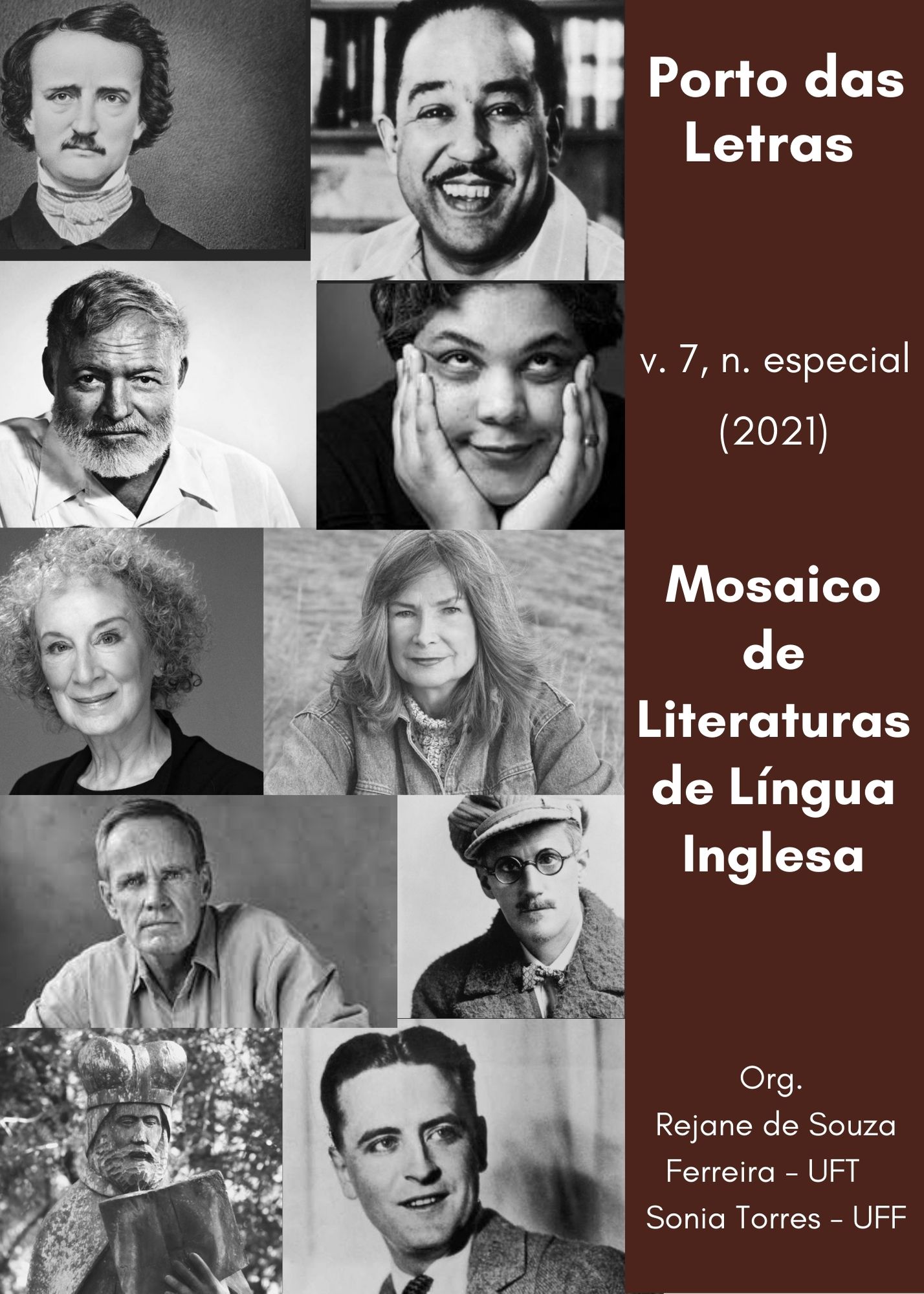NEOIMPÉRIO, IDENTIDADE E SUBALTERNIDADE
UMA ANÁLISE PÓS-COLONIAL DA IDENTIDADE DOS PERSONAGENS EM O VELHO E O MAR, DE ERNEST HEMINGWAY
Keywords:
Identidade; Literatura; Neoimperialismo; Subalternidade.Abstract
This study aims to develop a post-colonial analysis of the English language novel The Old Man and the Sea (1952) by the North-American Ernest Hemingway (1899-1961) with an attention on the definition of the characters´ identities represented in the narrative. For this purpose, it will be considered the predominant North-American neo-imperialist context in Cuba that covers the first half of the 20th century, period when this work was written. The use of the post-colonial theory for this study is justified due to its importance in the cross cultural studies, mainly when its concepts are applied in literature, promoting a reflection about the subalternity, condition attributed by the colonial power to the colonized people. Thus, with the analytical method, the characters will be observed as the main subjects affected by the United States’ neo-colonial system that determines as marginalized members toward the Empire. Therefore, the theoretical contributions of Ashcroft, Griffiths and Tiffin (1989, 2007), Bonnici (2000, 2005), Bosi(1992), Memmi (2007), among others, will be fundamental to the production of this research, and they will help to attempt to the reading of the corpus as a representation of the subordinated singularity, whose image is determined by the American colonizer to the colonized Cuban.
References
ASHCROFT, Bill; GRIFFITHS, Gareth; TIFFIN, Helen. The Empire Writes Back: Theory and Practice in Post-Colonial Literatures. London: Routledge, 1989.
ASHCROFT, Bill; GRIFFITHS, Gareth; TIFFIN, Helen. Post-colonial studies: The Key Concepts. London: Routledge, 2007.
BONNICI, Thomas. O pós-colonialismo e a literatura: estratégias de leitura. Maringá: Eduem, 2000.
BONNICI, Thomas. Conceitos-chave da teoria pós-colonial. Maringá: Eduem, 2005.
BOBBIO, Norberto; MATTEUCCI, Nicola; PASQUINO, Gianfranco. Dicionário de política. Tradução de Carmen C. Varriale et al. Brasília: Editora Universidade de Brasília, 1998.
BOSI, Alfredo. Dialética da Colonização. 3. ed. São Paulo: Companhia das Letras, 1992.
BOURDIEU, Pierre. A Dominação Masculina. 11. ed. Tradução de Maria Helena Kuhner. Rio de Janeiro: Bertrand Brasil, 2012.
BRUIT, Héctor Hernan. O imperialismo. 2. ed. São Paulo: Atual, 1987.
CHEAH, Pheng. What is a World?: On Postcolonial Literature as World Literature. USA: Duke University Press, 2016
CULLER, Jonathan. Teoria literária: uma introdução. Tradução de Sandra Vasconcelos. São Paulo: Beca Produções Culturais Ltda., 1999.
EAGLETON, Terry. Teoria da literatura: uma introdução. Tradução de Waltensir Dutra. São Paulo: Martins Fontes, 1983.
FANON, Frantz. A Dying Colonialism. Traduzido do francês por Haakon Chevalier. New York: Grove Press, 1965.
FANON, Frantz. Pele negra, máscaras brancas. Tradução de Renato da Silveira. Salvador: Edufba, 2008.
GANDHI, Leela. Postcolonial Theory: A Critical Introduction. New York: Columbia UP, 1998.
HEMINGWAY, Ernest. A Farewell to Arms. New York: Charles Scribner’s Sons, 1929.
HEMINGWAY, Ernest. The Old Man and the Sea. New York: The Scribner Library, 1952.
HEMINGWAY, Ernest. The Garden of Eden. New York: Scribner, 1986.
HEMINGWAY, Ernest. The Snows of Kilimanjaro. In: HEMINGWAY, Ernest. The Snows of Kilimanjaro and other stories. Scribner Book Company: New York, 1993.
HEMINGWAY, Ernest. O Velho e o Mar. Tradução de Fernando de Castro Ferro. 80. ed. Rio de Janeiro: Bertrand Brasil, 2013.
HEMINGWAY, Ernest. Adeus às Armas. Tradução de Monteiro Lobato. Rio de Janeiro: Bertrand Brasil, 2013.
HEMINGWAY, Ernest. O jardim do Éden. Tradução de Wilma Freitas Ronald de Carvalho. São Paulo: Círculo do Livro, 1986.
HEMINGWAY, Ernest. As Neves do Kilimanjaro e outros contos. Tradução de Ênio Silveira e José J. Veiga. Rio de Janeiro: BestBolso, 2011.
JOHNSON, Robert. British Imperialism. London: Palgrave Macmillan, 2003.
LOOMBA, Ania. Colonialism/Postcolonialism. New York: Routledge, 1998.
MEMMI, Albert. Retrato do colonizado precedido de Retrato do colonizador. Tradução de Marcelo Jacques de Moraes. Rio de Janeiro: Civilização Brasileira, 2007.
PAYASLIAN, Simon. The History of Armenia: From the Origins to the Present. London: Palgrave Macmillan, 2007.
SMITH, Bonnie G. Imperialism: A History in Documents. New York: Oxford University Press, 2000.
STRINGER, Keith. The Emergence of a Nation-State, 1100-1300. In: WORMALD, Jenny (Ed.). Scotland: A History. Oxford University Press: New York, 2005. p. 38-68.
TOTA, Antonio Pedro. O imperialismo sedutor: A americanização do Brasil na época da Segunda Guerra. São Paulo: Companhia das Letras, 2000.
Downloads
Published
How to Cite
Issue
Section
License
Os autores concordam com os termos da Declaração de Direito Autoral, que se aplicará a esta submissão caso seja publicada nesta revista (comentários ao editor podem ser incluídos a seguir).

